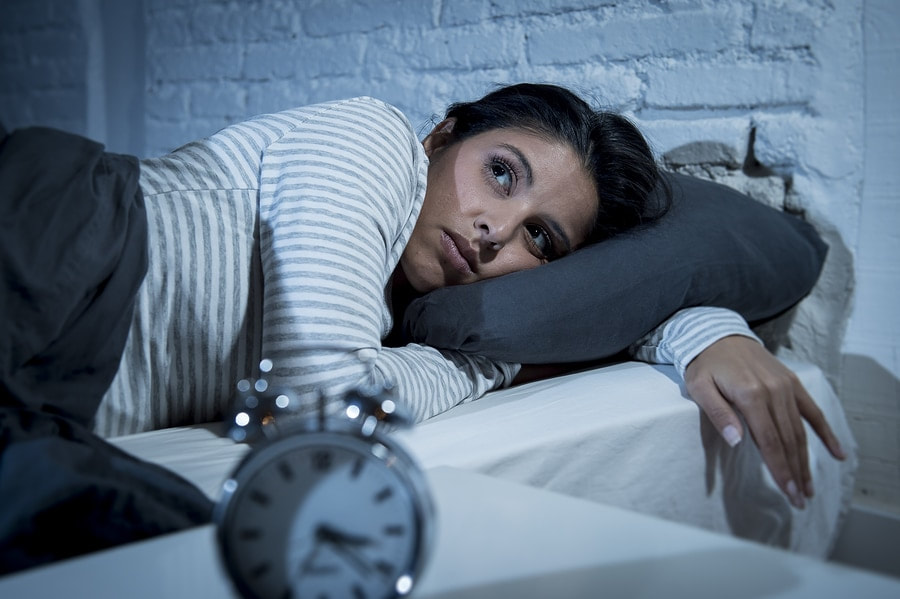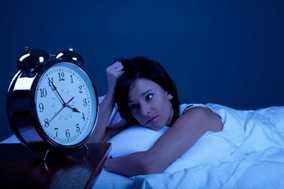|
How would you like to watch other people fall asleep for a living? It sounds damn easy and pretty interesting, but a second look into the job profile would make anyone think not once or twice but a couple more times before taking up this task! Some people are blessed (or even cursed maybe to control their sleep but monitor other people’s sleep) with the task of watching other people fall asleep to understand what happens right before a person enters a state of sleep! Tossing & Turning Going to sleep is a strenuous task by itself owing to our busy lifestyles, changing shift schedules, children sleep routines, smartphone and other electronic gadgets distractions and many such factors. We keep tossing and turning in bed unable to sleep within a few minutes of lying down. Our mind wanders to the day’s activities or we swiftly take out our smartphones and start watching our favorite series or playing a game. Finally, it takes more than 40 minutes to settle down and decide to sleep. Alas, the time you decide to sleep, sleep starts hating you and you take a longer time to doze off. Planning to sleep will never put you into a deep-sleep mode and is ought to definitely prolong the time taken to fall asleep. The good news here is that, if it takes quite some time before you fall asleep then its good for you. Generally, it takes between 10 and 20 minutes before you fall asleep and once you go to bed. Anything that takes more or lesser time is something to worry about. There are a lucky few souls who doze off immediately the next second their head hits the pillow and these are the ones that we have always felt jealous of! But, speaking truly, this is a sign of insufficient sleep and you must take care to allocate more snooze time. If you neglect this and carry on with sleep-reduced nights, someday its going to hit you back in a hard way. Better to avoid such negative consequences. For some others, it takes more than an hour to go to sleep mode and this is a clear indication of excess sleep or sleep onset insomnia. There are several reasons such as increased caffeine intake, disturbed internal clock (maybe due to jetlag) and other reasons such as conflicting thoughts that aptly suit this kind of delayed sleep onset. Try to self-regulate sleeping patterns otherwise talk to your healthcare provider about getting sleep quickly. How Do We Fall Asleep? Sleeping is a daily process but most of us are unaware of ‘how’ we fall asleep. Neuroscientists themselves are not 100% aware of the internal processing happening within the brain to switch over from a state of wakefulness to unconsciousness. A research done by scientists at a University show that an individual in the pre-sleep stage (lights are off and the individual’s eyes are closed) experiences alpha activity during which the brain isolates itself from outside factors. The individual is in a state of fusion between external and internal thoughts that get stored and used for future reference. Next, the brain enters the transition sleep stage (theta-band activity) and feels signs of alpha activity. Such hiccups are an indication that your brain is still awake. When some individuals were woken up from various stages of sleep, only 10% of them reported to have fallen asleep. The next stage is stage 2, the start of ‘true’ non-REM (Rapid Eye Movement) sleep and you are mostly devoid of any alpha activity at this stage. While neuroscientists define a person as ‘asleep’ in this stage, many people still don’t accept falling asleep. In a sleep-related study, almost 60% people who woke up from this stage believed that they were asleep but the other 40% still did not accept that they were sleeping. For example, when we are in a movie and in the first phase of sleep (stage 1), we hear a couple of words from the movie even when our eyes keep drowsing off. When a person is in stage 2, still he/she hears a word or two from the movie and finally drifts off completely. Finally, the individual enters the slow wave sleep (stage 3 and 4, deep-sleep stage or delta-band activity) and goes into REM sleep where dreams occur. Almost 90% people waking up from this stage accept falling asleep. After this, people usually cycle between non-REM stages (2, 3, 4) and REM sleep. Every person goes through different states and stages before falling asleep. Some people find it extremely easy to fall asleep and the transition is easy. For some others, it is like a roller-coaster ride oscillating between wakefulness, half-sleep and deep-sleep. Our body has an internal body clock that keeps ticking off constantly. During exams, travel or deadlines your body clocks wakes you up even before your alarm goes off. It is essential to finetune our body’s internal clock to get ourselves started on an active lifestyle. Read more about circadian rhythm and our internal body clock from the website www.firsteatright.com. Pre-Sleep Stage A team of researchers working at Cambridge on sleep routines have specifically studied the pre-sleep stage that remains as a prime cause for many accidents and mistakes. These might occur during daytime also when someone is involved in work. Anyone doing a boring task might not enter deep-sleep stage but tends to feel pretty drowsy. The person is 100% aware that he/she is not alert and drifting off to sleep. These drift-offs not only cause accidents while driving but also can sabotage important decisions at workplace that are made without any concentration. Actually, the researchers feel that people get more creative and imaginative in this phase of sleep as they are almost devoid of any inhibitions. Artists, musicians and writers find something inspiring/innovative for their work at this stage of sleep. Falling Asleep At the Right Time
Most people remain in the alpha stage and take more than an hour to sleep while a few others take much longer. The tips given here might prove to be useful to help you fall asleep faster:
Comments are closed.
|
AVOID FRAUD. EAT SMART.+91 7846 800 800
AuthorDietitian & Nutritionist Dr. Nafeesa Imteyaz. Archives
July 2024
Categories
All
Dr. Nafeesa's Blog @blogspot |
- Home
- Written Testimonials
- Consult
- Clinics
- Blogs
-
Diet & Nutrition
- Diabetes Reversal
- IVF IUI not needed for PCOS PCOD Infertility
-
Medical Nutrition
>
-
Disease & Conditions
>
- Infertility | PCOS
- Diabetes Mellitus
- Cholesterol
- Hypothyroid
- Kidney Problems
- Hypertension
- Cardiovascular Diseases
- Liver Diseases
- Gastro intestinal disorder
- Cancer
- Metabolic Disorders
- Orthopedic Disorders
- Eating Disorders
- Dietary Recall
- Weight Record Filled By Clients
- Online Payment Transaction Details
- Online Clients Weight Check Form
- Our Program Package Service Charges
- Weight Record 2017 Clients
- Measurements sent by Clients
- Terms & Conditions Of Payment
- Thanks. Your Form is Submitted
- Video Testimonials
- Lifestyle & Wellness
- Lifestyle & Wellness Blog
- Allergy & Intolerance
- Weight Loss / Gain
- Weight Loss / Slimming Blog
-
Disease & Conditions
>
- Life Cycle Nutrition >
- Sports Nutrition >
- Integrity in Nutrition
- Knowledge Centre
© COPYRIGHT 2022. ALL RIGHTS RESERVED. FRST HEALTHCARE PVT LTD.
Dr. Nafeesa Imteyaz of First Eat Right clinic, is the Best Dietitian Nutritionist in Bangalore. Best Dietitian Nutritionist in Pune. Best Dietitian Nutritionist in Hyderabad. Best Dietitian Nutritionist in Chennai. Best Dietitian Nutritionist in Mumbai. Best Dietitian Nutritionist in Delhi. Best Dietitian Nutritionist in Kolkata.




